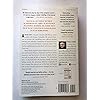


Ready to go? Add this product to your cart and select a plan during checkout. Payment plans are offered through our trusted finance partners Klarna, PayTomorrow, Affirm, Afterpay, Apple Pay, and PayPal. No-credit-needed leasing options through Acima may also be available at checkout.
Learn more about financing & leasing here.
Returnable until Jan 31, 2025
To qualify for a full refund, items must be returned in their original, unused condition. If an item is returned in a used, damaged, or materially different state, you may be granted a partial refund.
To initiate a return, please visit our Returns Center.
View our full returns policy here.
Description
The definitive story of , one of the most successful companies in the world, and of its driven, brilliant founder, Jeff Bezos. started off delivering books through the mail. But its visionary founder, Jeff Bezos, wasn't content with being a bookseller. He wanted Amazon to become the everything store, offering limitless selection and seductive convenience at disruptively low prices. To do so, he developed a corporate culture of relentless ambition and secrecy that's never been cracked. Until now. Brad Stone enjoyed unprecedented access to current and former Amazon employees and Bezos family members, giving readers the first in-depth, fly-on-the-wall account of life at Amazon. Compared to tech's other elite innovators -- Jobs, Gates, Zuckerberg -- Bezos is a private man. But he stands out for his restless pursuit of new markets, leading Amazon into risky new ventures like the Kindle and cloud computing, and transforming retail in the same way Henry Ford revolutionized manufacturing. The Everything Store will be the revealing, definitive biography of the company that placed one of the first and largest bets on the Internet and forever changed the way we shop and read. Read more
Publisher : Back Bay Books; Reprint edition (August 12, 2014)
Language : English
Paperback : 416 pages
ISBN-10 : 0316219282
ISBN-13 : 80
Item Weight : 2.31 pounds
Dimensions : 5.5 x 1.25 x 8.25 inches
Best Sellers Rank: #36,322 in Books (See Top 100 in Books) #48 in E-Commerce (Books) #68 in Company Business Profiles (Books) #131 in Biographies of Business & Industrial Professionals
#48 in E-Commerce (Books):
#68 in Company Business Profiles (Books):